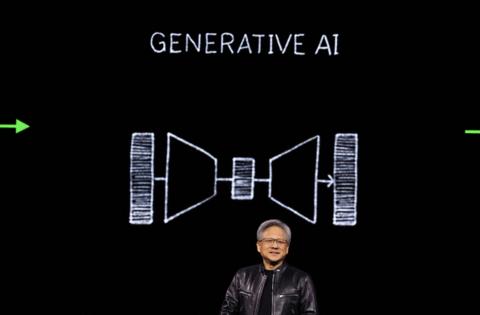US charges Chinese nationals with Nvidia chips export breach
Published in Business News
Two Chinese nationals were arrested this week on charges that they sent tens of millions of dollars worth of advanced AI chips made by Nvidia Corp. to China in violation of U.S. export restrictions, according to authorities.
The defendants used a company based in El Monte, California, to export sensitive technology, including graphics processing units, used in artificial intelligence without obtaining the necessary government licenses, the Justice Department said in a statement Tuesday.
According to a criminal complaint provided by the agency, the two individuals shipped Nvidia-designed chips, including the company’s H100 AI accelerators, which are the basis for computers used to create and run artificial intelligence software. Such chips require official approval for sales to certain countries.
The accused were identified by authorities as Chuan Geng, 28, of Pasadena, and Shiwei Yang, 28, of El Monte. They have been charged with violating the Export Control Reform Act and could face as much as 20 years in prison, according to the Justice Department.
Lawyers for the Geng and Yang couldn’t be immediately located for comment.
“This case demonstrates that smuggling is a nonstarter,” Nvidia said in a statement. The company said it primarily sells its products to well-known partners “who help us ensure that all sales comply with U.S. export control rules.”
“Even relatively small exporters and shipments are subject to thorough review and scrutiny, and any diverted products would have no service, support or updates,” Nvidia said.
Over the past several years, the U.S. has steadily tightened restrictions on exports of semiconductors and chipmaking equipment to keep China from gaining ground in the race for AI dominance. The Trump administration is exploring ways to include enhanced location-tracking in AI chips to help with export control enforcement.
Up until being superseded earlier this year by a new line of products from Santa Clara, California-based Nvidia, the H100s were considered the most capable such processors. Their export to China and other countries the U.S. has deemed a threat to national security requires licenses from the Commerce Department that are not usually given.
In the complaint, authorities called the H100 “the most powerful GPU chip on the market” and claimed the defendants sought to evade U.S. export restrictions on it by shipping through third countries. The Justice Department said Geng and Yang operated a company called ALX Solutions Inc. that was founded in 2022 shortly after the U.S. Commerce Department began requiring licenses to sell such chips to overseas buyers.
Export records and other business documents indicate that the company sent at least 20 shipments to shipping and freight-forwarding companies in Singapore and Malaysia but never received payments from those entities, the Justice Department said. ALX Solutions instead received “numerous payments” from companies based in Hong Kong and China, including a $1 million payment from a China-based company in January 2024, the DOJ said.
Those records show that in December 2024, the company had sent a shipment of GPUs that it claimed was in compliance with U.S. export rules, the DOJ said, but neither ALX Solutions nor the defendants had received the U.S. licenses required for such a transaction.
Authorities said they searched the ALX Solutions office and seized phones belonging to Geng and Yang and found evidence of communications about shipping chips covered by export controls to China through Malaysia in violation of U.S. restrictions.
Yang was also accused of overstaying her visa, according to the Justice Department. Geng is a legal permanent resident, authorities said. A federal judge in Los Angeles on Monday ordered Geng released on a $250,000 bond and scheduled a detention hearing for Yang on Aug. 12. The court did not take any pleas in the case.
The Commerce Department’s Bureau of Industry and Security is assisting the probe, along with the Federal Bureau of Investigation.
—With assistance from Ian King.
(Updates with comment from Nvidia in sixth paragraph.)
©2025 Bloomberg L.P. Visit bloomberg.com. Distributed by Tribune Content Agency, LLC.












Comments